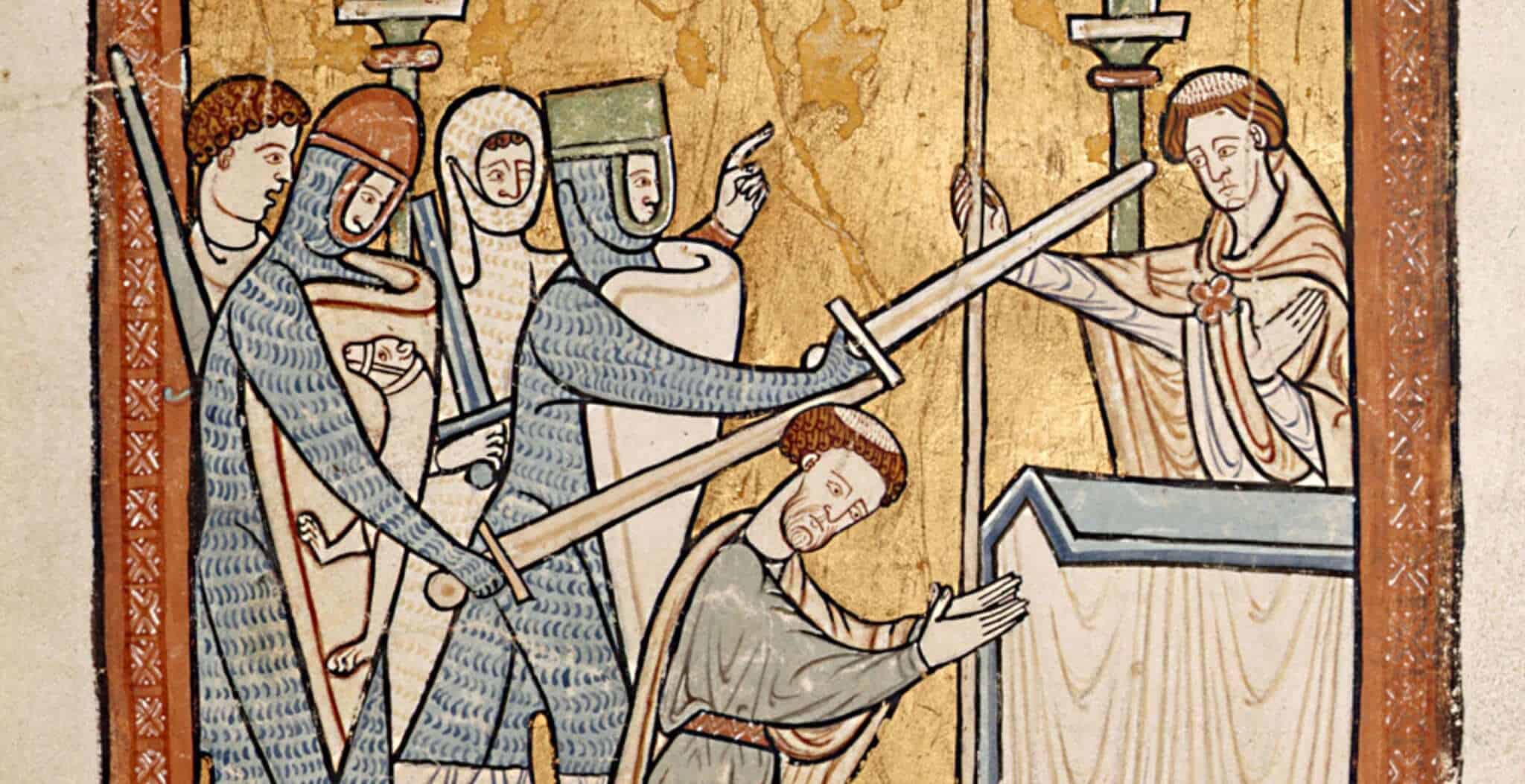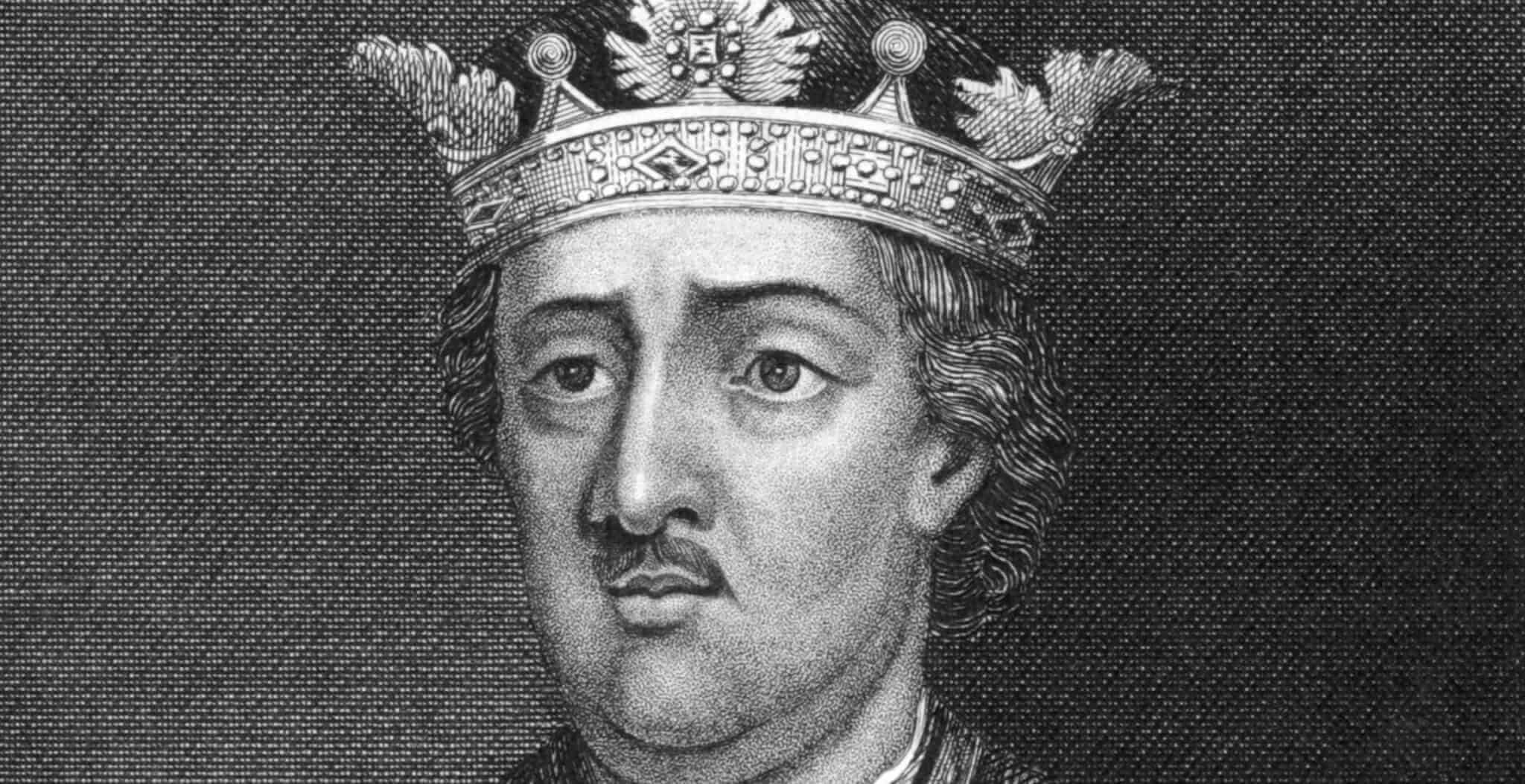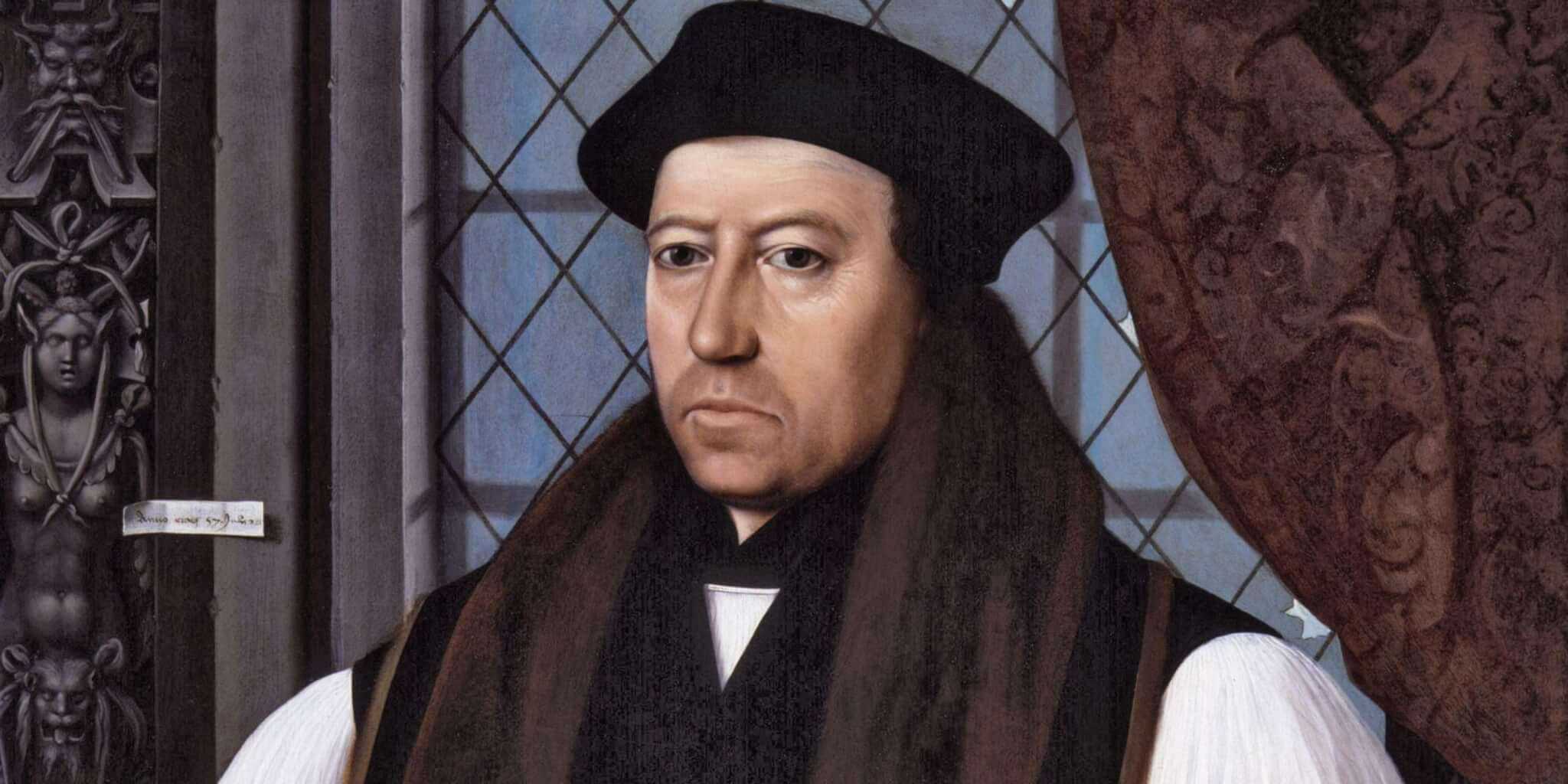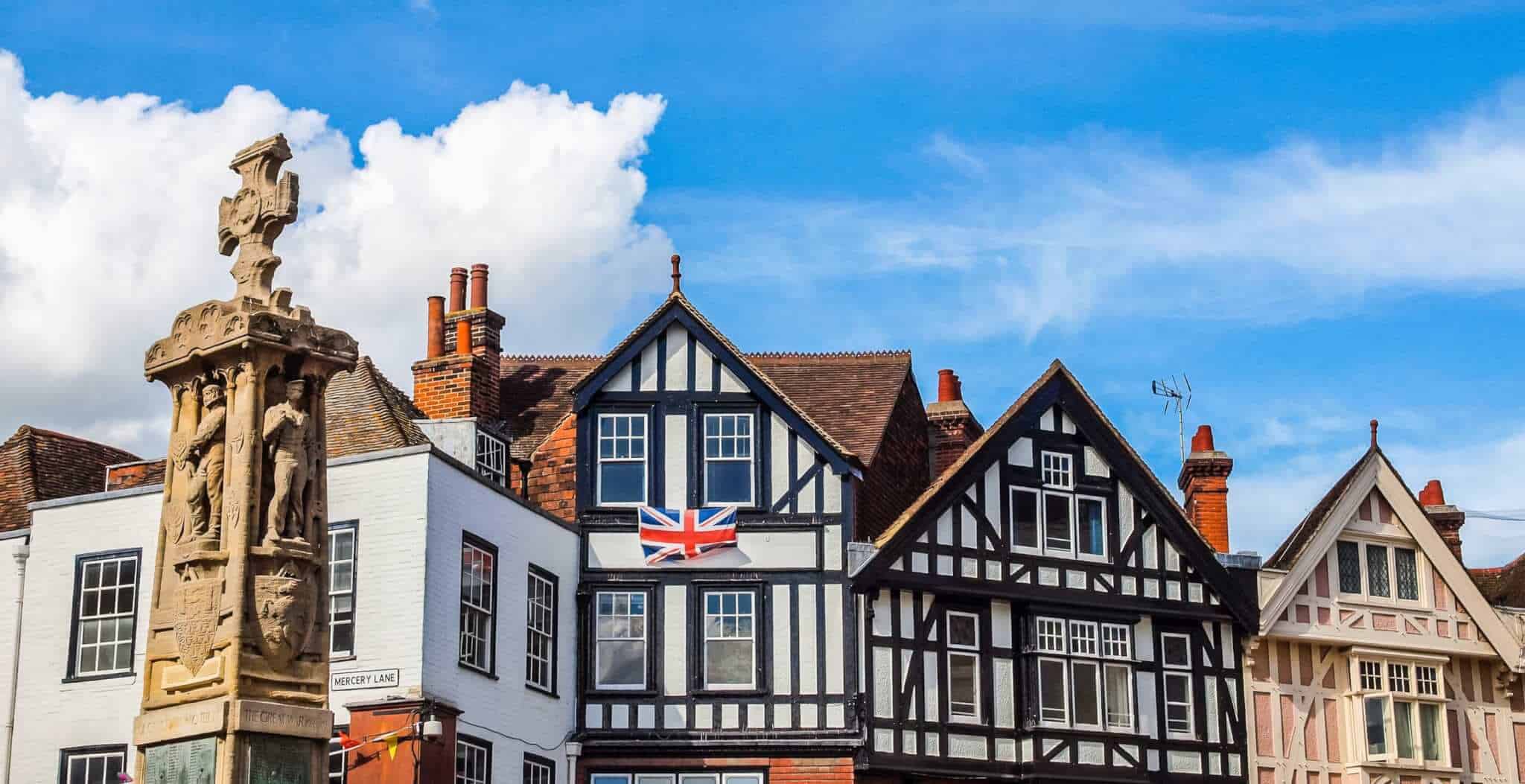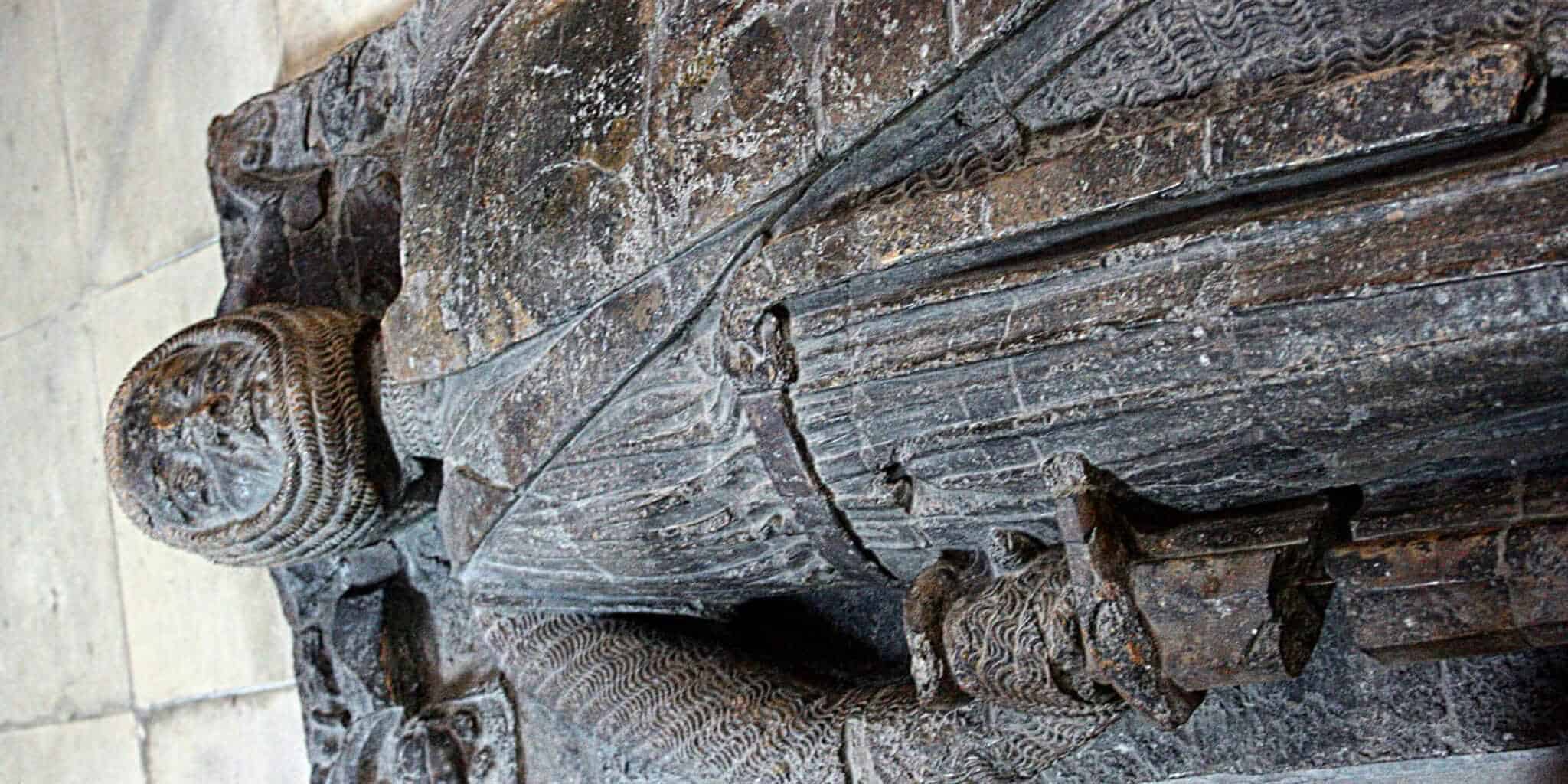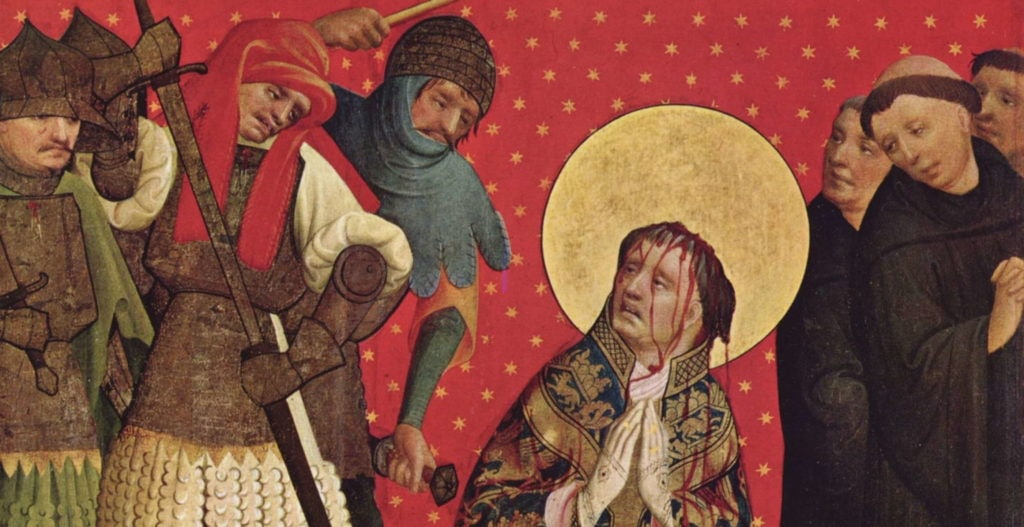Murder in the Cathedral.
Thomas Becket, a London merchant’s son, was a complex person – in his youth he was a normal ebullient young man, stormy and proud, selfish and arrogant, vain, and anxious to please, but in later life, became one of the most pious and devout Archbishops of the 12th century.
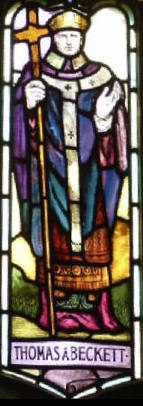 Despite differences in their status Thomas’s greatest friend was Henry, who was later to become King Henry II of England. They hunted and played chess together, people said the two men ‘had but one heart and one mind’.
Despite differences in their status Thomas’s greatest friend was Henry, who was later to become King Henry II of England. They hunted and played chess together, people said the two men ‘had but one heart and one mind’.
When at the age of 21 Henry became king, Becket became his Chancellor. Both furious workers, they laboured tirelessly to bring law and order to Henry’s realm.
It was during Henry’s reign those legal terms such as ‘trial by jury’ and ‘assizes’ (sittings) became so familiar in the English language. The king’s judges travelled the country administering the common law – the law of all free men.
The exception to this was the Church, which had its own courts and own laws. Priests who murdered or raped could avoid common-law justice by claiming ‘benefit of clergy’, the right to be tried in the bishop’s court. The worst that could happen here was to be issued with a severe penance or exceptionally, expulsion (defrocking) from the priesthood.
Much of the power in the country at that time was enjoyed and exploited by the rich bishops and abbots of the Church. And, whilst the Church swore loyalty to the king, they also insisted that their true allegiance was to God and his earthly representative, the Pope in Rome.
On the death of his Archbishop of Canterbury in May 1161, Henry saw his chance of bringing the Church to heel, by promoting his best friend Thomas to the newly vacated post.
With the donning of his archbishop’s robes however, Becket’s whole demeanour seems to have changed, as he appeared to have experienced a religious conversion.
‘Born again’ Thomas changed completely – from then on he wore a sackcloth shirt which reached to his knees, and swarmed with all forms of wildlife. He had a very sparse diet, and his accustomed drink was water.
King Henry and Becket remained good friends until they clashed over clerical privilege. Henry stated that the church was subject to the law of the land, but Becket insisted that the Church was above the law.
Their confrontation came to a head at Northampton Castle in October 1164, when supporters of Henry questioned Thomas’s loyalty to his king by accusing him of being a ‘Traitor’.
Some harsh words were exchanged …‘Whoremonger!’, ‘Bastard!’, and other such choice expressions, before Thomas made a strategic withdrawal …to France!
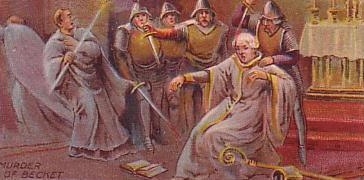
Thomas spent some six years in exile before things calmed down sufficient for him to return to Canterbury. Preaching from the cathedral on Christmas Day 1170, Thomas again displayed his stormy temperament when he excommunicated some of his fellow bishops with the words …’May they all be damned by Jesus Christ!’
Henry became incensed when he heard of this outburst and is said to have uttered the fateful words “Will no one rid me of this turbulent priest!”
Four of Henry’s knights, probably not the brightest of men, took this as a summons to action, and left for Canterbury immediately.
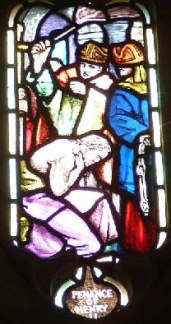 They reached Canterbury Cathedral on December 29th, where they found Becket before the High Altar, as he had gone there to hear Vespers. One of the knights approached him, and struck Becket on the shoulder with the flat of his sword. It seems that the knights did not at first intend to kill Becket, but as he stood firm after the first blow, the four attacked and butchered him.
They reached Canterbury Cathedral on December 29th, where they found Becket before the High Altar, as he had gone there to hear Vespers. One of the knights approached him, and struck Becket on the shoulder with the flat of his sword. It seems that the knights did not at first intend to kill Becket, but as he stood firm after the first blow, the four attacked and butchered him.
It is recorded that they cracked open his skull spilling his brains onto the cathedral floor!
Henry was horrified when he heard the news as he believed that it was his words that had been the cause of Becket’s death. As an act of penitence he donned sackcloth and ashes, and starved himself for three days.
Becket was immediately hailed as a martyr and canonised in 1173, after which his shrine in Canterbury Cathedral became the most important centre of pilgrimage in England, with relics associated with him distributed to churches throughout Europe.
Unfortunately this shrine was totally destroyed during the Reformation in 1540, when King Henry VIII ordered his bones to be destroyed and all mention of his names obliterated. Today, the place of Thomas’ death in Canterbury Cathedral is marked by a simple stone bearing his name.
